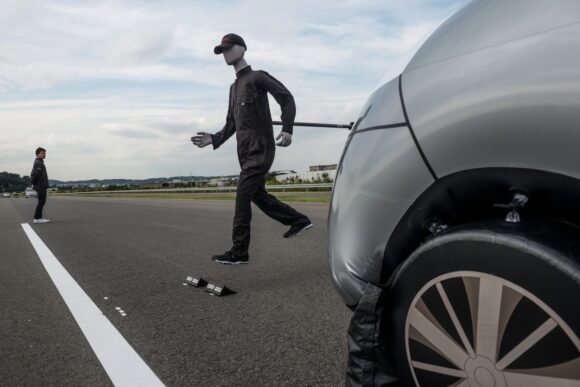The U.S. government should require automakers to offer advanced safety features like lane departure warning in all passenger vehicles and commercial trucks to prevent accidents, the National Transportation Safety Board said on Wednesday.

These new technologies, which include adaptive cruise control, are offered by automakers as options at additional cost, but they are not required to meet federal safety standards, the board said.
“Their full life-saving and crash-avoidance potential will not be realized until supported by federal rulemaking and related standards,” the board said in a press release.
Rear-end collisions account for 28 percent of all highway accidents, while accidents in which a vehicle veers off the road, overturns or crashes into an object account for 23 percent, National Highway Traffic Safety Administration data show. Nine percent are caused by a car veering out of its lane.
Forward collision warning, automatic braking and electronic stability control were also cited as technologies that should be made standard. Such features are offered mostly in luxury models, although they are now appearing in more mainstream cars.
On certain models of its $44,000 2013 Cadillac ATS, General Motors Co offers a safety package costing more than $3,200 that includes a lane departure warning system and adaptive cruise control, in which the car automatically adjusts its speed to keep a safe distance from the car ahead.
Toyota Motor Corp includes similar safety features and more in a $6,500 package on the 2013 Lexus LS460, which costs nearly $72,000. Ford Motor Co offers adaptive cruise control on certain versions of the 2013 Fusion sedan for $995.
The forward collision warning system, which uses radars or lasers to sense objects ahead, could prevent 879 fatal passenger car crashes a year, the Insurance Institute for Highway Safety said. It could prevent 115 fatal crashes in large trucks.
The Institute, a nonprofit supported by auto insurers, said lane departure warnings and electronic stability control systems can prevent 247 and 439 fatal accidents a year, respectively.
Was this article valuable?
Here are more articles you may enjoy.


 Berkshire Utility Presses Wildfire Appeal With Billions at Stake
Berkshire Utility Presses Wildfire Appeal With Billions at Stake  FM Using AI to Elevate Claims to Deliver More Than Just Cost Savings
FM Using AI to Elevate Claims to Deliver More Than Just Cost Savings  Why 2026 Is The Tipping Point for The Evolving Role of AI in Law and Claims
Why 2026 Is The Tipping Point for The Evolving Role of AI in Law and Claims  Elon Musk Alone Can’t Explain Tesla’s Owner Exodus
Elon Musk Alone Can’t Explain Tesla’s Owner Exodus 